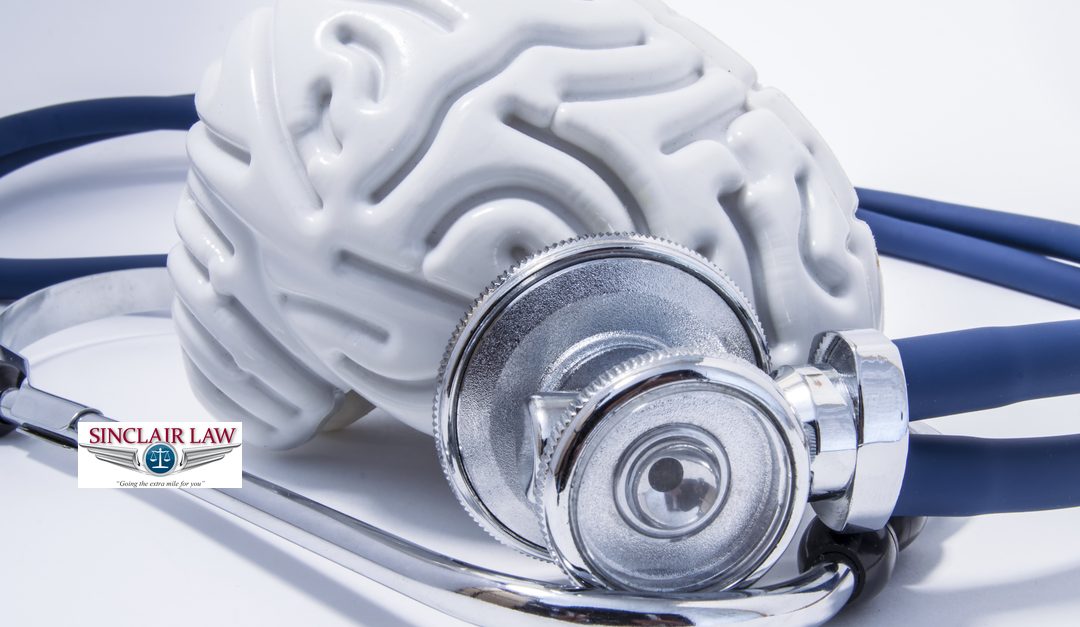One of the most devastating injuries a person can sustain in an auto accident is a traumatic brain injury. One of the things that makes this type of injury so insidious is that often the person suffering the damage remains completely unaware that they have been hurt until problems develop to the point where they impact a person’s ability to function properly in their day-to-day life. Even with a medical examination, symptoms are often missed without specialized tests being utilized.
In the interest of helping others avoid the devastation that I have seen this form of personal injury take on some of my clients, I would like to offer this short introduction to brain injuries, how they occur and the impact they can have on your life.
As always when writing an article dealing with injuries, I would like to stress two points.
I am a personal injury attorney, not a medical professional, and the information contained in these articles is based on personal experience and research. It is for informational and educational purposes only.
You should always seek professional medical attention anytime you are involved in any type of accident. No symptom, no matter how minor it may seem at the time, should be ignored or go unreported to your medical provider for evaluation and diagnosis.
Anatomy of a Brain Injury
To understand how the majority of brain injuries occur in auto accidents, we first need to take a look at how the human head is constructed. We will dispense with the outer layers such as the skin and muscle and focus on three primary parts: the skull, the fluid shock absorber surrounding the brain (cerebrospinal fluid or CSF) and the brain itself. You can think of the brain as being like a glob of over-thickened jelly floating in a bath of the CSF and contained inside its own crash helmet, the skull.
The majority of brain injuries that occur in auto accidents are due to sudden shifts in your head, causing the brain to move faster than its shock absorber can react and actually strike the hard bone that was intended to protect it. When this happens, there are a number of different injuries that can occur, from simple concussions to traumatic brain injuries (TBIs) where severe and irreversible damage is caused.
Some common symptoms you’ll want to watch for that could be signs of TBIs are:
Blurred vision or ringing in the ears
Changes in sleep patterns
Confusion or disorientation
Depression, irritability, anxiety or other mood swings
Dizziness and problems balancing
Drowsiness or fatigue
Headache, nausea or vomiting
Light or noise sensitivity
Loss of consciousness
Memory problems
Problems concentrating
Pupils not equally dilated
While some of these problems, such as uneven dilation, may be apparent immediately after the injury occurs, others, like changes in sleep patterns or mood swings, may not become noticeable for some time and in truth are often noted by friends and family of the victim before the injured party themselves. So, if you have been involved in an accident and others question your condition, don’t ignore them. Seek immediate medical attention.
Time Is Not on Your Side
According to the CDC, 286,000 TBIs result from car crashes each year. That makes it one of the two leading causes of this type of injury nationwide. Unfortunately, many of them are not diagnosed in time for corrective action to be taken, and the injured party is left with a permanent mental impairment.
This is truly a tragedy of major proportions, and a sad companion to these late diagnoses is that the patient is often left having a very hard time recovering damages for their condition or its treatment. This often leaves the person with a diminished ability to function, mounting medical bills and little hope for compensation.
Because brain injuries often leave no visible signs of damage, they can be difficult to prove in court. Insurance companies will try to deny the injury exists. Failing that, they can and will use the delay in the injury being discovered to refute it is their client’s fault or even related to the accident you were involved in.
Once again, if you are involved in an auto accident, always seek immediate medical attention and report all symptoms. I would also advise seeking qualified legal representation as soon as possible. If you happen to be in the Melbourne, Florida, area, I am happy to offer you my advice.

